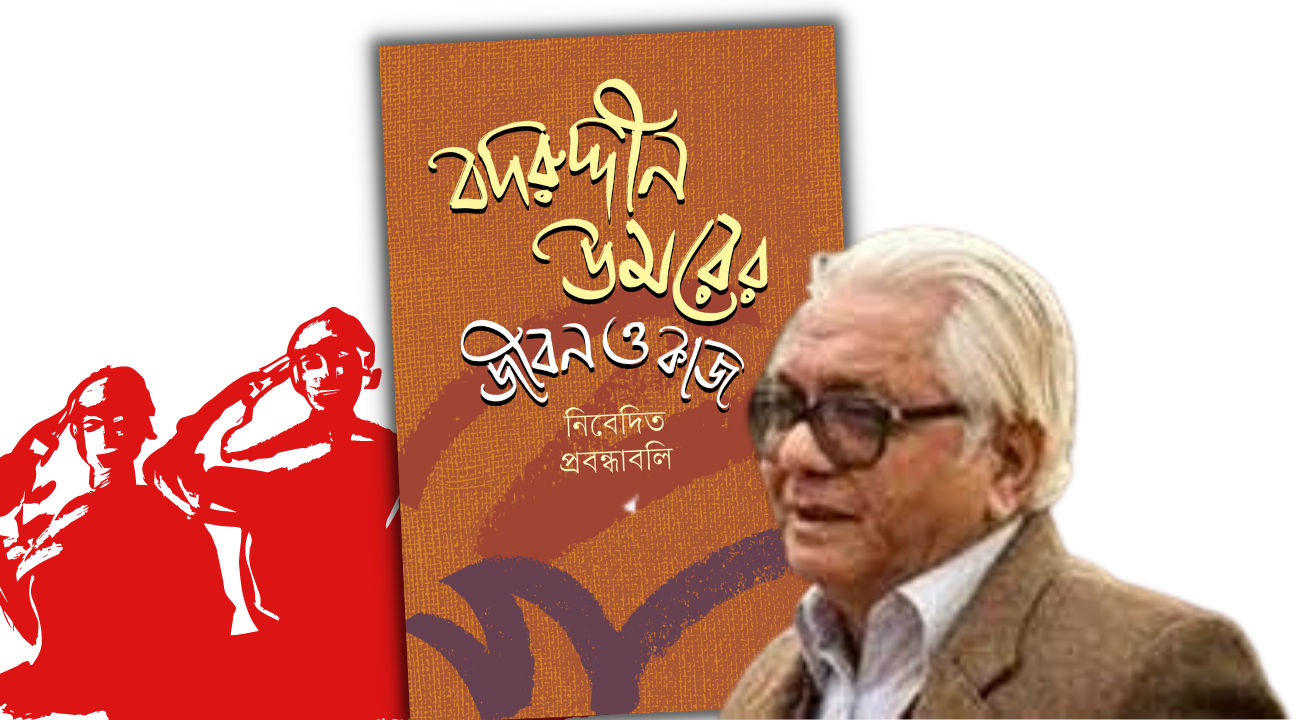Standing firm against the establishment: Farewell Badruddin Umar

Back in my early teenage years, when I was not much into politics, my grandfather used to make me read interviews and editorials from newspapers aloud while he listened. He was especially excited about making me read the interviews of one particular writer whom he admired. "I was lucky enough to be his student at Rajshahi University," he used to say. Following him, I later became an avid reader of that man. Yes, these books were very dense, but they not only represented the knowledge and research of the writer, they also attested to his character—the literature stood firm against the establishment. That man was Badruddin Umar, a remarkable author and activist who passed away on August 7, 2025 at the age of 94.
Born in 1931, Umar was no stranger to politics. His father was Abul Hashim, one of the most prominent politicians of the Bengal Muslim League. As Umar reminisced in his interviews in Bamponthar Surothal: Badruddin Umar Er Itihash Porikroma (Prothoma, 2025) with Mohiuddin Ahmed, his home was a political discussion house, where politicians from all parties moved freely. Inspired by his father, who was seen as part of the left faction of the Muslim League in Bengal, Umar became interested in leftist politics. After completing his PhD at Oxford University in 1961, he returned to Bangladesh. He inaugurated the Departments of Sociology and Political Science at Rajshahi University, but left the teaching profession in 1968. This resignation was partly due to his wish to dedicate his life to leftist politics, and partly due to pressure from Abdul Monem Khan, then Governor of East Pakistan, on the university's vice-chancellor.
The rest of his life was dedicated to an unrelenting struggle against the establishment, to which he contributed not only through his writing but also direct activism. There is no denying that his books are dense. Whenever he chose to study a particular history, he thoroughly researched the surrounding facts and events, and analysed them carefully through a Marxist lens. His magnum opus is probably The Emergence of Bangladesh (Oxford University Press, 2004), written in two parts: Class Struggles in East Pakistan (1947-1958) and Rise of Bengali Nationalism (1958-1971). This book challenges the traditional narrative of the liberation struggle being led by one man or one party, and instead documents the history from the grassroots. In his view, the anticolonial struggle led by the masses later became an aggressive Bengali-nationalist one, which disguised the class contradictions within society under the veneer of unity.
Another of his concentrated works was Purbo Banglar Bhasha Andolon Ebong Totkalin Rajneeti (Subarna, 1970), published in three parts. It remains one of the most informative books on the language movement in East Pakistan, which laid the seeds of the Bengali nationalism he strongly opposed. It would also be wrong not to mention the three-part series that first brought him into the limelight in both Bangladesh and West Bengal—Shamprodayikota (Mowla Brothers, 1966), Shongskritir Shongkot (Shrabon Prokashoni, 1967), and Shangskritik Shamprodayikota (Mowla Brothers, 1968). These explored topics such as communal violence, how it was politically constructed, and why. Another book that shook the West Bengal political literature scene was Ishwarchandra Vidyashagar Ebong Unish Shotoker Bangali Shomaj (Subarna, 1973), where he explored the Bengali renaissance in general, and Vidyasagar in particular. He rejected the notion of seeing the 19th century Bengali reformers as equivalent to the European Renaissance because of their ties to feudalism and zamindars, instead placing their reforms in specific historical context.
Always a voice against the ruling class, Badruddin Umar was a fierce critic of the post-1971 regime of Sheikh Mujibur Rahman. In his now-famous article "A Constitution of Perpetual Emergency", later included in his collection Politics and Society in Bangladesh (Subarna, 1987), he criticised the 1972 constitution vehemently, arguing that it provided "the ruling classes with all the emergency powers to be exercised within the framework of a constitution." This line of criticism was later taken up by other intellectuals and ultimately led to demands for constitutional reform after the July Uprising of 2024.
Critics and supporters alike have chosen one adjective to describe him: uncompromising, and he owned that word till his death. Umar was offered multiple awards from different organisations—including the Bangla Academy Award in 1974 and the Independence Day Award in 2025. He rejected all recognitions and awards, believing that accepting such rewards was a compromise. A staunch critic of the autocratic regime of Sheikh Hasina, he was an avid supporter of the July Uprising of 2024. And as the fierce intellectual that he was, he didn't shy away from criticising the Interim Government in the aftermath of that uprising or against what he saw as the rise of right-wing tendencies.
With the demise of Badruddin Umar, Bangladesh has lost one of its finest intellectual powerhouses. Bangladesh will surely miss his writings, which were sharp and often brutal. He will be remembered for his contribution to Bangladeshi historical literature, to the political scene, and to the countless readers like me who he inspired to take a critical lens toward the establishment.
Farewell, Badruddin Umar!
Sadman Ahmed Siam, as the name suggests, is indeed a sad man. Send him happy quotes at: siamahmed09944@gmail.com.



 For all latest news, follow The Daily Star's Google News channel.
For all latest news, follow The Daily Star's Google News channel. 
Comments